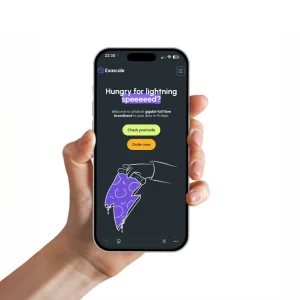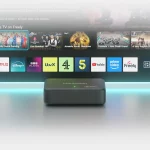Sponsored Links
UPDATE UK Government Puts Out Huge GBP2 Billion Broadband ISP Tender
Posted: 30th Jun, 2011 By: MarkJ

 The government's Broadband Delivery UK (BDUK) office, which has been given the responsibility for increasing access to broadband in poorly served areas across the country, has quietly put out a tender worth between £750m and £2bn +vat for a new national framework agreement to help achieve its targets.
The government's Broadband Delivery UK (BDUK) office, which has been given the responsibility for increasing access to broadband in poorly served areas across the country, has quietly put out a tender worth between £750m and £2bn +vat for a new national framework agreement to help achieve its targets.At present BDUK only has a budget of £530m (rising to £830m by 2017), which it claims will help 90% of "people in each local authority area" to access a superfast broadband (25Mbps+) service by 2015. Sadly the last 10% will have to make do with a minimum download speed of 2Mbps (i.e. Universal Service Commitment).
The estimated value of the new tender is based upon the total level of public subsidy (including any EU funds) and private sector investment expected to be put towards the funding of projects. In other words, the maximum of £2bn isn't all government money. BT is already using a 50/50 style split approach (match-funding) and that is also the government's preferred solution.
BDUK Tender Quote
"BDUK is seeking to establish a framework agreement of suitably qualified suppliers capable of delivering local broadband projects as required by local bodies or groups of local bodies in regions throughout the UK. Further details of the "local bodies" who may make call offs under the framework agreement are included in Section VI.3.
The framework agreement is expected to be the procurement vehicle for the majority of local broadband projects once they have been allocated BDUK funding. There may be a small number of local broadband projects that do not use the framework agreement and this will be agreed with BDUK."
"BDUK is seeking to establish a framework agreement of suitably qualified suppliers capable of delivering local broadband projects as required by local bodies or groups of local bodies in regions throughout the UK. Further details of the "local bodies" who may make call offs under the framework agreement are included in Section VI.3.
The framework agreement is expected to be the procurement vehicle for the majority of local broadband projects once they have been allocated BDUK funding. There may be a small number of local broadband projects that do not use the framework agreement and this will be agreed with BDUK."
According to Computing, up to 12 qualified suppliers will be needed to take part and all must be capable of delivering a range of broadband services with related requirements. Some of the key requirements have been set out below, including the need for any services to be "open access" and able to reach up to 500,000 premises (homes and businesses).
Supplier RequirementsSo far BDUK is known to have allocated over £100m of its initial budget to around eight superfast broadband pilots, with the most recent batch of funding (£50m) being distributed last month (here) to projects in Wiltshire (England) - £4m, Norfolk (England) - £15m, Devon and Somerset (England) - £30m.
* The design, build, implementation and operation of wholesale broadband networks. Call offs may be at the equivalent of a sub-county, county, multi-county or regional level and such areas could potentially be up to the order of 500,000 premises. As a minimum a supplier will need to have the capability to deliver at least one local project as defined in the Pre-Qualification Questionnaire.
* Broadband solutions that meet outcomes-based specifications rather than being tied to specific technologies and platforms.
* Open access wholesale services including those that can be made available by retail service providers (e.g. Internet Service Providers) as part of their retail broadband packages for business and residential customers.
* Related services including (but not limited to) marketing services, demand stimulation and ancillary services. It is currently anticipated that the initial term of the framework agreement will be two years with the possibility / option to extend this by up to 2 one year extensions, making a maximum possible term of 4 years.
Following completion of each design, build and implementation phase, it is anticipated that call off contracts will run for a minimum operational period of seven years essentially in order to comply with State aid requirements relating to open access.
At the time BDUK claimed that a further announcement, which would cover funding for every local authority in the country, was expected to be made "later this year". An additional 18 local authorities are known to have bid and will receive funding before 2015. Some areas were also warned of the need to revise their plans in order to better fit into the governments cash strapped budget.
It's understood that interested suppliers will now be invited to attend a special briefing session via teleconferencing on 5th July 2011, where a Pre-Qualification Questionnaire will be presented in order to help the government make its decision.
BDUK Tender: UK-London: telecommunications servicesUPDATE 1st July 2011
http://www.publictenders.net/tender/109632
Some people were quick to spot that the Tender also required suppliers to deliver speeds of between 15Mbps and 50Mbps. The lower end is well below the governments own minimum target of 25Mbps+, although they claim that this is just a guide and has not changed their original goal. We'll have more on this later from INCA.
Search ISP News
Search ISP Listings
Search ISP Reviews
Latest UK ISP News








Cheap BIG ISPs for 100Mbps+
150,000+ Customers | View More ISPs
Cheapest ISPs for 100Mbps+
Modest Availability | View More ISPs
Latest UK ISP News
Helpful ISP Guides and Tips
Sponsored Links
The Top 15 Category Tags
- FTTP (6850)
- BT (3900)
- Politics (3096)
- Business (2792)
- Openreach (2680)
- Building Digital UK (2523)
- Mobile Broadband (2498)
- FTTC (2148)
- Statistics (2145)
- 4G (2113)
- Virgin Media (2039)
- Ofcom Regulation (1790)
- 5G (1755)
- Fibre Optic (1610)
- Wireless Internet (1605)
Sponsored
Copyright © 1999 to Present - ISPreview.co.uk - All Rights Reserved - Terms , Privacy and Cookie Policy , Links , Website Rules































